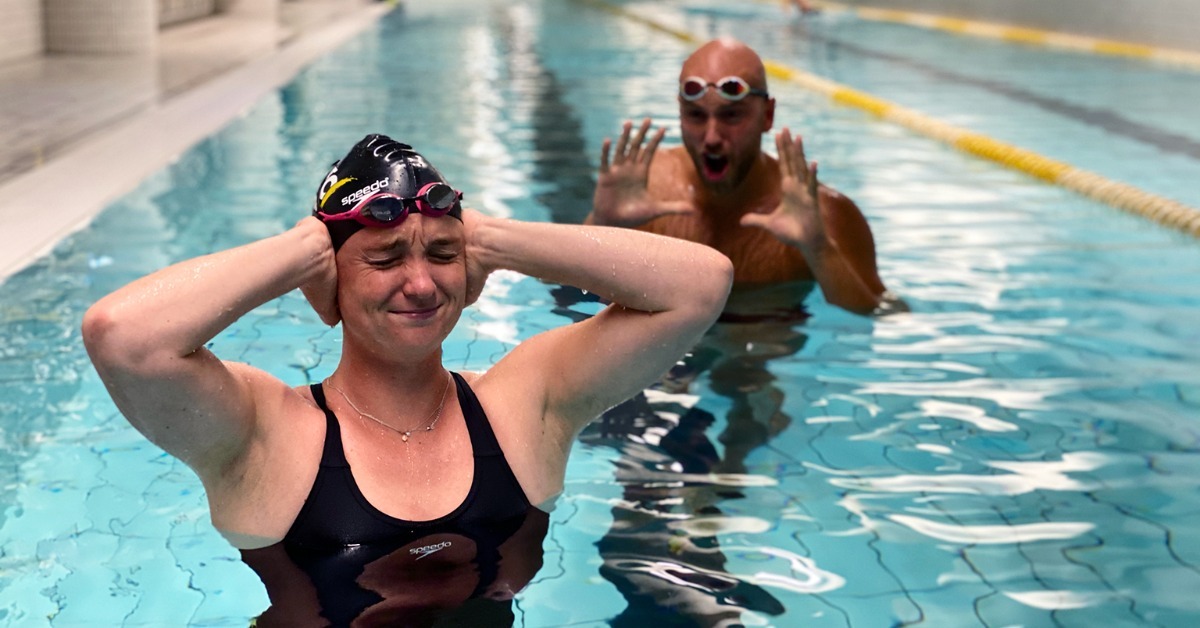Swimming blog - TRAINING 4 things you don’t want to hear as a swimmer
There will always be inside jokes and things you can relate to as a swimmer. This also means there are things non-swimmers will never understand. We all know these awkward questions. But no worries, you are not alone in this, we’re in this together. What are the top 4 things you really don’t want to hear as a swimmer?
1. Is swimming a sport?
Seriously. Are you kidding me? Get real! One of our coaches, a top swimmer in their day, was asked this question by a soccer player. Their reply was; “You think your sport is hard, try doing it without breathing.”
If swimming is a sport is one of the most frequent and weirdest questions you will encounter as a swimmer. It is also something you don’t want to hear when you’re working your heart out in the pool. A good response to a question like this could be the following fun fact. Swimming burns 1 ½ times the calories of land-based exercise for the same duration and intensity of training. You can't beat that.
So, what is the reasoning behind this? People think swimming is not a sport and for a couple of reasons.
- Races are short and there is a lot of sitting around.
- Everybody can swim and can learn to swim. How hard can it be? This only means that swimming is accessible to and beneficial for everyone that does it. Acquiring a good level of proficiency in swimming takes time and effort, like in any other sport.
- There is no contact between swimmers (they haven’t met waterpolo players yet) is another reason why it may not be considered a sport, but then so must many other sports as well.
- Swimmers take frequent breaks in training, called intervals. This is not because we’re lazy but because water is 800 times denser than air and it’s like exercising in syrup, hence why intervals and technique are so important.
If you are asked this question in polite conversation, our advice to you is to invite this person to join you and swim with you for an hour and try to keep up. You can talk about whether swimming is a sport afterwards. We already know the answer.
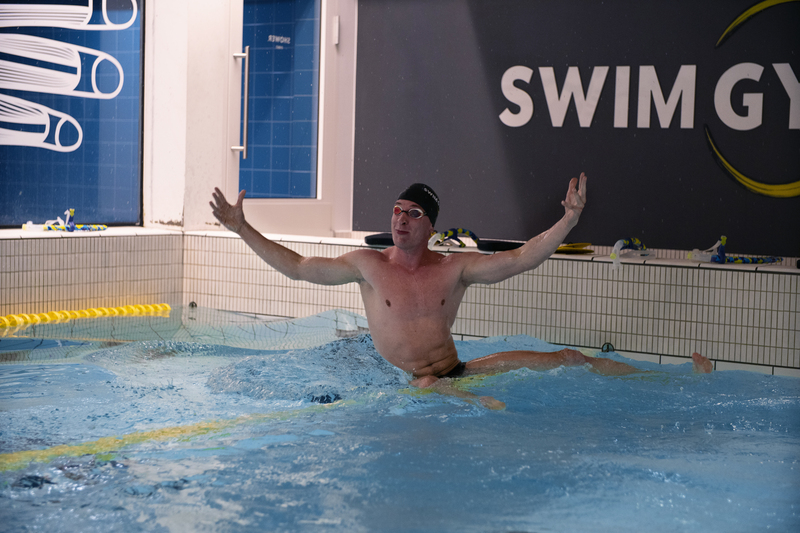
2. Swimming gives you big shoulders
Yes, you use your arms in swimming. A lot in fact and all the time. 80-85% of forward propulsion in swimming comes from the arms. Trained muscles get bigger as a consequence of their use and function. Yes, you will get bigger shoulders, but also beautiful shoulders from swimming. It will give you well-defined shoulders, which are useful and necessary in moving you through the water and achieving your swimming goals. Strong is definitely the new beautiful.
Wear your swimming shoulders with pride, we surely do.
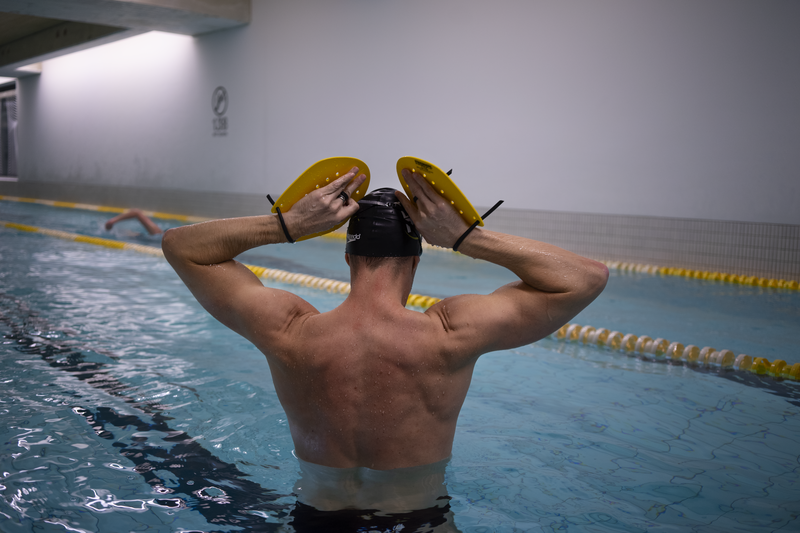
3. Swimming is boring
“Swimming is as boring as watching paint dry. All you are doing is moving up and down the pool and nothing changes.” This statement couldn’t be further from the truth.
Everything is fluid in swimming; changeable and changing. Your breathing, your technique, flow through the water. Swimming can be very relaxing, since swimmers are thinking a lot about their technique and movement through the water, forgetting all about your workday and daily struggles. There are thousands of ways to ‘un-bore’ a training.
Restrict your breathing, swim intervals, swim other strokes, swim in open water, do a sprint workout. The list is endless, and you can find plenty of suggestions in our workout database for some inspiration.
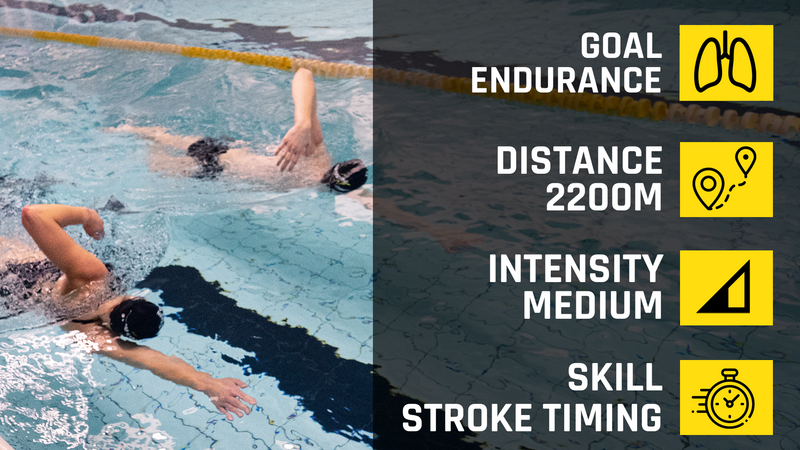
4. Swimming is an individual sport
We believe that swimming is not an individual sport. It is a group activity done with others. Learning to swim with others in the same lane. Getting to know people with whom you swim are the marks of a team sport. The team spirit builds motivation to come back time and time again. Competing with others in training has always been an integral part of swimming, at any level.
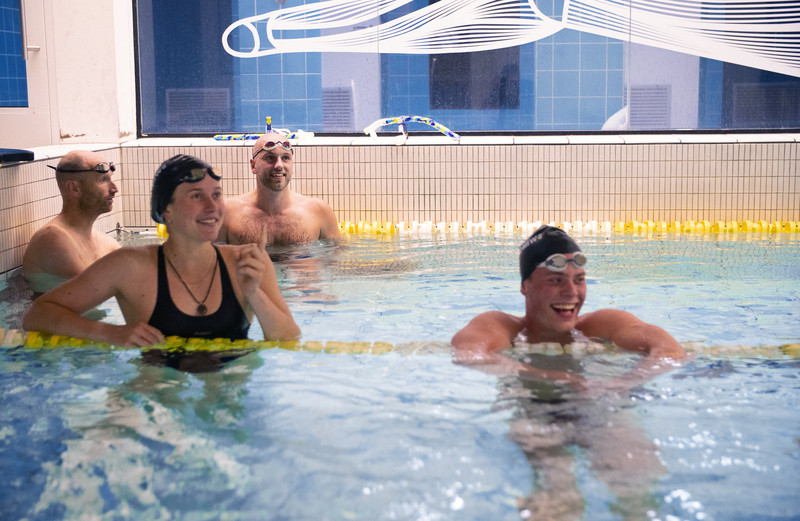
There is pride in claiming your sport is swimming. We truly believe swimming is the best sport there is. Own it.
Written by Michael Stolt
